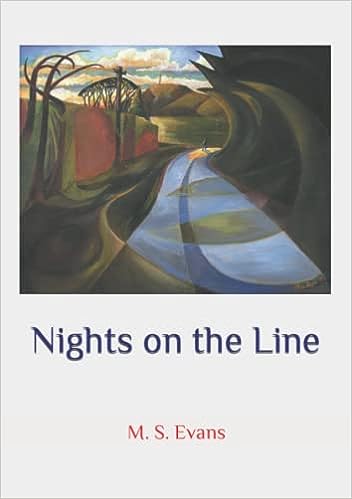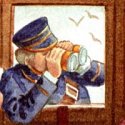This first collection by Seattle-born MS Evans, deals with the ordinariness of getting by, of scraping a living and so fittingly, the poems are sparse. The white-space-to-words ratio is heavily in the white-space’s favour which in turn conveys a sense of the poet being alone in the vast spaces of Northern America. The publishers are Black Bough Poetry, specialists in imagism, and so these poems are minimalist but suddenly lit up by vivid precise images. For example, when talking to her grandmother, the poet’s voice is ‘thin as vase-water’ and hers is ‘loose river rock’. But within these imagistic poems, there is a wealth of extra events and stories.

Here are stories about journeying, of travelling by train through the landscapes of North America. It reports on a personal journey of self-development, of taking risk, of confronting prejudice. We learn of personal struggles from childhood: ‘only the boys were allowed to sled / down Sunrise Hill’. These poems require that you read harder and read better and as you do so, these stories begin to emerge.
In ‘My Bedroom Window’ the collection begins at the family home where the writer expresses how she feels safe under ‘protective branches’, and the ‘wind-stirred leaves’ provide a lullaby.
In ‘Nights on the Line’ the poet begins her journey eastward through Montana to Wenatchee on the eponymous Line, the northernmost transcontinental railway line in the United States. In ‘Hi-Line Towns’, we sit with the poet on the Hi-Line train and see ‘small towns, far apart’ revealed through the vivid image of them being ‘worn wood beads on a / spare string’.
But in ‘Turf’, the poet faces a tough existence begging on the street and having to tough it out with the boys who demand ‘a share of my money’. In ‘Sleeping Rough, Calgary’, the poet is bedding down in a donated sleeping bag in a van with the temperature 15 degrees below. In ‘Crew Change’, the poet and her friends are sleeping rough by the railway track, waiting for the sound of the train to be brought to life so they can hitch a ride.
This is a collection full of geography. In ‘Timberline, Montana’, we’re taken up into the Rockies and see the elements scattered about – the flotsam of discards: ‘worn glass, lone marbles’. The poet conjures images of the seashore – ‘dreams of bladderwrack’s beauty’ into the mountains’ domain.
In ‘Shipwright’s Helper’, we learn something of the poet’s ambitions to break out of the stereotypical limits of being a girl. We hear elements of dialogue between the novice woman working ‘in the trades’ in the shipyard and becoming ‘one of the boys’. This phrase becomes a tragic refrain as ‘one of the boys’ falls and breaks his back.
Towards the end of the collection, there is the sense of returning home, not only to Seattle but also to perhaps an ancestral home, tracing a family link to Wales. In ‘Butte’ we hear the whispering of ‘Welsh words, half-forgotten / a path / through sun-purpled glass’. We experience ‘hiraeth’, the Welsh word for longing or nostalgia, the feeling of longing for a home that no longer exists or never was. In ‘Llennyrch‘, the poet thinks of other homes, perhaps even of a relative’s misdeeds in Llennyrch Forest and so, in reparation, she places ‘small gifts under trees’.
The sense of homecoming is celebrated in the final poem, ‘Heaven’, where Babcia (grandmother in Polish) is waiting at the end of the journey with a warm resolution in a ‘field of wildflowers, lightly tended.’
There’s no sense of the romantic wanderer in these poems. There’s no idealistic portrayal of the charms of the open road. This is tough stuff, full of hard knocks and dirty socks. But within these poems, there is the sense of a courageous spirit seeking change, seeking fulfilment.
